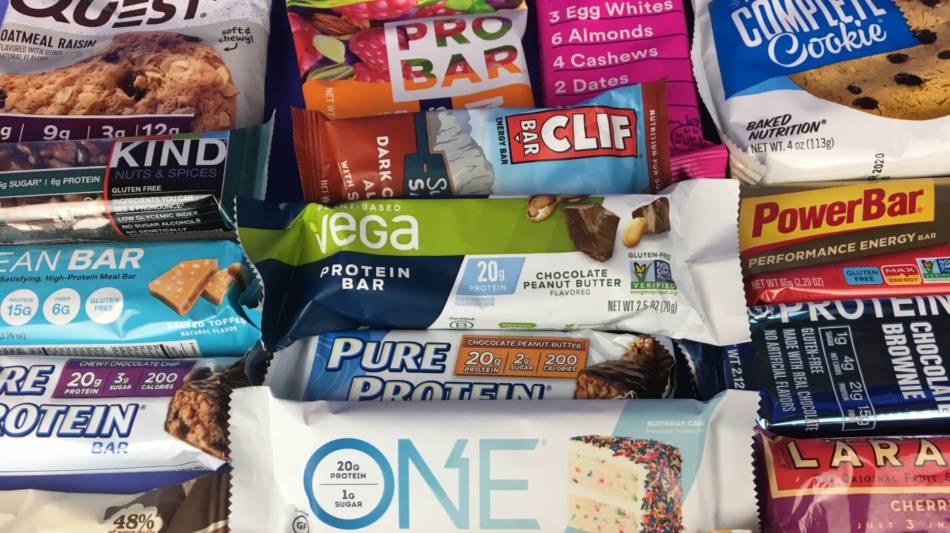Summary
-
What are nutrition bars?
Nutrition bars and cookies are distinguished from candy bars and regular cookies by their higher content of protein — about 10 to 20 grams -- and/or fiber — about 9 to 12 grams. Even "energy bars" which pack 20+ grams of sugar for a quick boost, typically include a good amount of protein (See Background). -
What are the health benefits of nutrition bars?
Extra protein (typically about 30 grams to 50 grams per day) can help athletes build muscle and older people prevent or reverse age-related loss of muscle and strength when used in conjunction with resistance-type exercise. The easiest way to get this much protein is from a protein powder added to a drink, but protein bars and cookies offer added convenience, although it's hard to pack 20 grams or more of protein into a bar and have it taste good. Nutrition bars can also be a convenient way to get a range of nutrients (protein, fats, carbs, vitamins, and minerals) when you're on-the-go and don't have time for a meal. What did CL's tests of nutrition bars find?
Our laboratory tests showed that each nutrition bar or cookie contained its listed amount of protein and those that claimed to be gluten-free, were. But several products failed to live up to claims regarding carbohydrates (too much), fats and cholesterol (too much), or fiber (too little). (See What CL Found).-
Nutrition bar Top Picks:
Among the products that passed our tests and were Approved, we selected Top Picks that represented the best combination of quality, value, and taste. Top Picks were chosen for Energy Bars, Fiber Bars, High Protein Bars & Cookies, Meal Replacement Bars, and Fruit & Nut Bars. You can also compare all of the products in the Results Table. -
Nutrition bar ConsumerTips:
Just by looking at a label, you may be able to spot a problem if you add up the calories and the total doesn't closely match what's on the label. Also, watch out for bars claiming to get their fiber from "tapioca starch" (as it is mostly starch with little, if any, fiber) as well as those listing "Net Carbs" — which is not an FDA-defined term. Also, be aware that low-calorie bars typically achieve this with sugar alcohols and other sugar substitutes that can cause gas, and individuals with lactose intolerance may want to avoid certain milk-based proteins. Keto bars may contain significantly more fat, and in particular, saturated fat (often from coconut oil), than other types of bars. Other ingredients that you may not expect are caffeine and added vitamins and minerals, and be aware of allergens, such as nuts, and saturated ("bad") fats from some milk proteins. Finally, be aware that nutrition bars add significant calories to your diet and, unless replacing other foods, have been shown to cause weight gain.

































